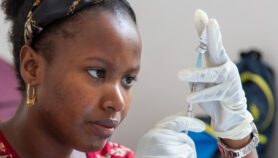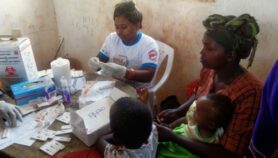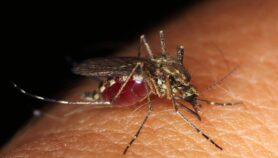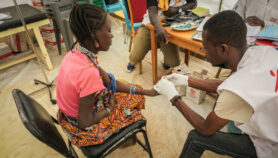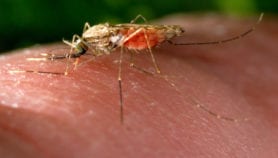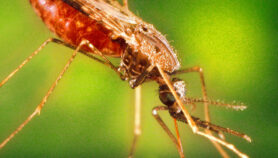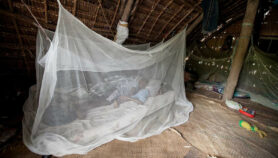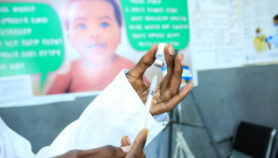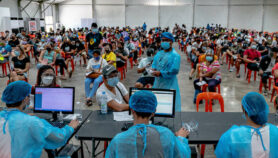24/06/22
Summit spurs pledges on malaria, neglected diseases
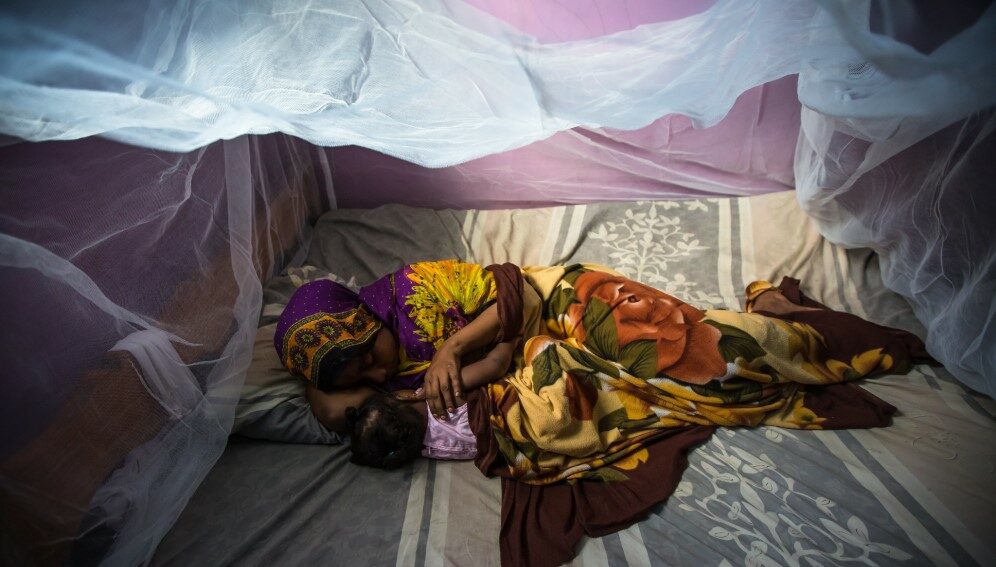
By: Ochieng’ Ogodo
Send to a friend
The details you provide on this page will not be used to send unsolicited email, and will not be sold to a 3rd party. See privacy policy.
[NAIROBI] Countries affected by malaria and neglected tropical diseases (NTDs) have committed to increasing funding and fast-track the process of eliminating the diseases by 2030 at a key summit in Kigali.
NTDs are a set of 20 diseases prevalent in poor communities, mostly in tropical areas. They include Buruli ulcer, Chagas disease, dengue fever, guinea worm disease, and human African trypanosomiasis. Alongside malaria, they weigh heavily on the health systems of low- and middle-income countries in Africa, Asia, and Latin America.
The Kigali Summit on Malaria and Neglected Tropical Diseases, held Thursday (23 June) alongside the 26th Commonwealth Heads of Government Meeting, had presidents, prime ministers, CEOs, philanthropists, scientific experts, global influencers and community champions in attendance.
“Ensuring that all African countries mobilise the domestic financial resources required for quality healthcare, is a priority for the African Union, and our partners,” Rwandan president Paul Kagame told delegates at the international event.
“We need commitments from donors to support the countries being left behind like the Democratic Republic of the Congo, Liberia, Sierra Leone and Yemen.”
Caroline Harper, Sightsavers
“If there is one thing the pandemic has taught us, it is that together, through coordinated and collaborative action, we can achieve much more.”
Experts said the summit offered a chance to push governments and other key actors to commit to eliminating the diseases.
Sightsavers CEO Caroline Harper said it was “a once-in-a-decade chance to galvanise governments and other partners to make firm commitments which put the elimination and control of NTDs back on track and finally end the suffering they cause to 1.7 billion people [globally]”.
She told SciDev.Net: “National governments are showing great leadership but require committed and dedicated support right up until the end, when the job is done.”
Harper believes that donors are key to fighting malaria and NTDs, which affect the poorest communities most severely. “We need commitments from donors to support the countries being left behind like the Democratic Republic of Congo, Liberia, Sierra Leone and Yemen,” she added.
David Reddy, CEO of Medicines for Malaria Venture (MMV), told SciDev.Net that decisions and commitments at the Kigali summit were critical to ensuring that malaria and NTDs remained part of the key focus in healthcare.
He said that MMV would continue with research and development and make “strenuous attempts” to ensure malaria drugs were manufactured in Africa.

According to the World Health Organization (WHO), Africa was home to 95 per cent of global malaria cases and 96 per cent of malaria deaths in 2020 , with children under five accounting for about 80 per cent of all malaria deaths in the region. There were an estimated 241 million cases of malaria worldwide and about 627,000 deaths.
“It is stealing the future talents of these countries yet it is entirely preventable and avoidable but requires investment, commitment and action,” said Reddy.
Harper urged countries where NTDs are endemic to commit to bring treatment into their health systems and train their health workers to support this, especially in remote communities that also need access to clean water and sanitation.
At the summit, Sightsavers pledged to invest US$25 million over the next four years as part of a renewed push to tackle NTDs in Africa.
Harper said it was “a firm commitment where the money has already been raised” and added: “I hope others will join us to harness the opportunities presented by the Kigali summit to ensure we respond with concrete action, not just words.”
Melanie Renshaw, a senior technical advisor of the African Leaders Malaria Alliance, describes malaria and NTDs as pathfinders for sustainable pandemic preparedness and response and the long-term strengthening of health systems.
Both malaria and NTD programmes need to stay ahead of the ongoing threats of both drug and insecticide resistance through constant innovation, with new drugs and insecticides coming through the pipelines, she says.



“We must address the threat of partial antimalarial drug resistance in Africa by rolling out new antimalarials and ensuring market-shaping efforts are in place to ensure that prices are reduced to enhance the affordability of these new but often more expensive commodities,” explained Renshaw.
“There are also opportunities for innovation in use of data, for example through the use of malaria and NTDs scorecards and action trackers to enhance accountability and action from head of state down to community level,” she told SciDev.Net.
This piece was originally produced by SciDev.Net’s Sub-Saharan Africa English desk.




